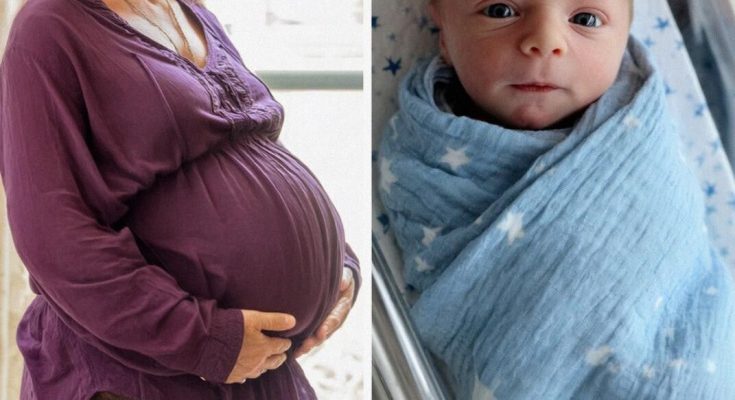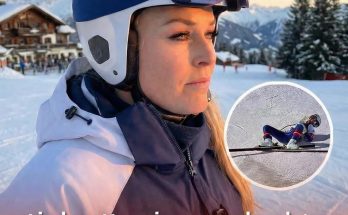When I married Arthur, I thought I’d hit life’s jackpot — a kind, thoughtful husband and a mother-in-law who welcomed me as her own from the very start. Linda wasn’t the stereotypical overbearing MIL; she was warm, generous, and disarmingly kind. She’d call just to check in, bring soup if I sneezed, and insist I sit while she washed the dishes. For years, she felt like the mother I never had.
I never imagined that one day she’d look me in the eyes and say, “You’re not taking him.”
Arthur and I started trying for a baby a year after our wedding. We were in our mid-thirties — ready, excited, and hopeful. But after months of negative tests and endless appointments, our optimism began to crack. Three rounds of IVF drained us completely — emotionally, financially, physically. Each failure felt like another piece of me collapsing.
One afternoon, after yet another failed cycle, Linda found me crying on the bathroom floor. She knelt beside me, wrapped me in her arms, and whispered, “Don’t lose hope, sweetheart. Families come together in all kinds of ways.”
A week later, she showed up at our door holding a binder full of research. “I’ve been reading about surrogacy,” she said, eyes shining. “I talked to my doctor. He says I’m healthy enough to carry a baby. Let me do this for you.”
I laughed at first. Linda was fifty-two, retired, and spent her days gardening and volunteering at the library. But she wasn’t joking — and Arthur was touched. After speaking with doctors, lawyers, and therapists, we learned it was actually possible. Linda passed every test, and she refused any payment.
“It’s a gift,” she said. “I carried Arthur. I can carry this baby too.”
It sounded crazy — but also miraculous.
The embryo took on the first try. When the clinic called to confirm, I sobbed in Arthur’s arms. Linda texted a photo of the positive test covered in heart emojis with the caption: “Your little miracle is on the way!” For her first ultrasound, she wore a shirt that read, “Baking for my daughter-in-law.”
For months, everything was perfect. She updated me daily — the baby’s kicks, cravings, appointments. But around month seven, something changed.
When I mentioned setting up the nursery, she laughed and said, “No rush — he’ll be spending plenty of time with me anyway.” I thought it was a joke, but soon she started calling him “my baby.”
Arthur brushed it off as hormones. I tried to believe him. But when Linda filled out hospital paperwork listing herself as the mother, something cold settled in my chest.
The baby came early — a Saturday night. I was trembling with joy and fear. After years of heartbreak, this was it. When I heard his first cry, I sobbed. The nurse smiled and said, “Congratulations, parents.” She tried to hand me the baby — but Linda reached out and took him first.
“Don’t touch him,” she said. “He’s not ready to go with you.”
At first, I thought I misheard. Then she said it again, voice trembling. “He knows who his real mother is.”
Arthur stepped forward. “Mom, please. Hand him to us.”
She looked at him like he was a stranger. “You don’t understand,” she said softly. “You don’t know everything, do you?”
“What are you talking about?” I asked.
“I gave birth to him,” she said. “That makes him mine.”
My world spun. “No — he’s our baby. Our DNA. You carried him, but he’s ours.”
Her face hardened. “You’re not taking him.”
The nurse froze. Arthur tried to reason with her, but Linda clutched the baby tighter, screaming, “You don’t deserve him! I do!”
Security rushed in. We were asked to wait outside. I stood in the hallway, shaking, hearing my baby cry behind the door — the sound slicing through me.
Hours later, a nurse finally emerged, holding him. “She’s asleep now,” she said gently. “And the paperwork’s clear. He’s yours.”
I held him — our son, Neil — and every ounce of fear melted into love. I promised he’d always feel wanted. I didn’t know how soon that promise would be tested.
At 2 a.m., the phone rang. Linda’s voice was wild. “You tricked me! You took him! He belongs with his real mother!”
Arthur grabbed the phone. “Mom, stop. You signed the contract. He’s not yours.”
“You used me!” she screamed. “You made me a vessel!”
Arthur hung up, pale with rage. He opened the safe, pulled out our documents — the surrogacy agreement, DNA tests, medical records — and said quietly, “If she wants a fight, she’ll get one.”
A week later, we were served court papers. Linda was suing for custody. She accused us of manipulating her, claiming she hadn’t understood what she signed. Her family sided with her, insisting we’d “used” her.
I lived in constant fear. Every knock on the door made me jump. I barely slept, terrified she’d show up to take Neil.
When the court date arrived, Linda sat across from us, small and fragile in a pink cardigan, clutching tissues. She wouldn’t meet my eyes.
Her lawyer painted a picture of betrayal and emotional abuse. Then it was her turn to speak.
“I carried him,” she said softly. “I felt him kick. He knew my voice. You can’t tell me I’m not his mother.”
I sat frozen, gripping Arthur’s hand, praying the truth would matter.
And it did.
Our lawyer presented everything — the DNA proof, signed documents, counseling records, even the texts where she’d called Neil “your little miracle.” The judge’s ruling was swift.
“The child is the biological and legal offspring of Mr. and Mrs. Bennett,” she said. “Custody remains with the parents.”
It was over — legally, at least.
Outside the courtroom, Linda finally faced us. Her voice was cold. “You think you’ve won. But one day he’ll know. You’ll have to tell him you stole him from the woman who gave him life.”
Arthur’s reply was steady. “We’ll tell him the truth — that his grandmother helped bring him into this world, and then tried to take him away.”
We left exhausted. But peace never came. Her sisters called, accusing us of cruelty, insisting we “owed her something.”
In the end, we offered Linda a payment — the same we would have paid a professional surrogate. It felt wrong, but it ended the nightmare. She accepted, wordless.
We moved away, changed numbers, and started over.
Now, when people ask about family, I smile and say, “It’s just the three of us.”
And when they talk about keeping family close, I think of Linda — the woman who meant well, who loved too deeply, and lost herself in that love.
Some things, I’ve learned, are better left outside the family. Surrogacy is one of them.
Because love can create miracles — but it can also break them.



